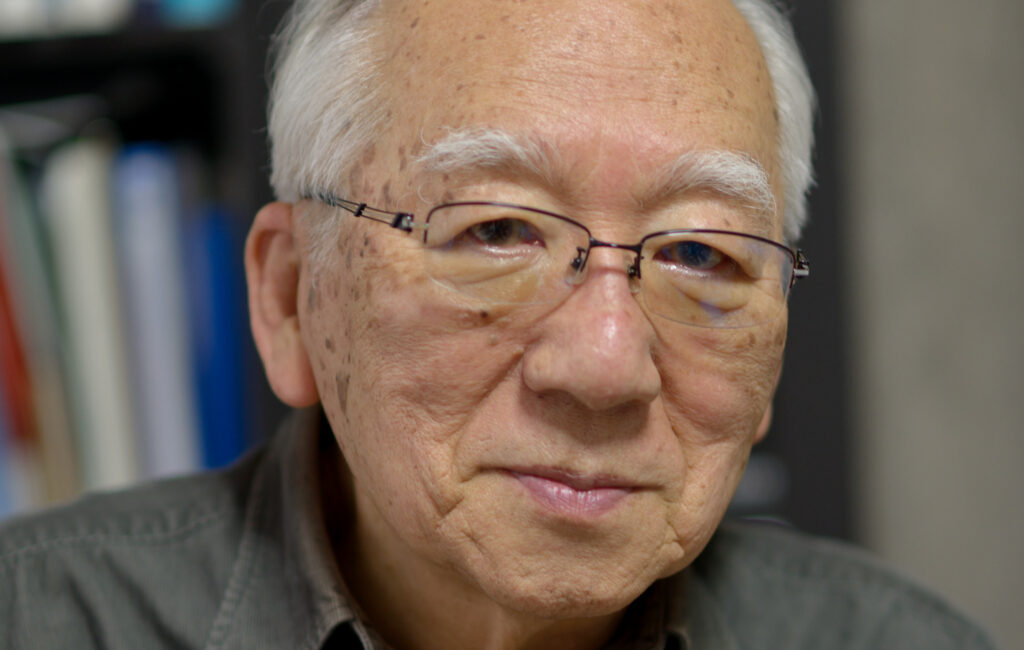Joji Yuasa (1929-2024)

Composer, educator, and ISCM Honorary Member Joji Yuasa died on 24 July 2024 at the age of 94.
Curiously, Yuasa, born on 12 August 1929 in Fukushima, Japan, did not begin to completely immerse himself in music until he was in his early 20s and originally pursued medical studies. Largely self-taught as a composer, in 1952 he joined the young cross-disciplinary artist collective Jikken Kōbō, whose members also included Tōru Takemitsu, and was greatly encouraged in exploring experimentation and work in multimedia. Yuasa’s compositions derived from his belief that music is the movement of acoustic energy and he was one of the pioneers of electronic music in Japan. Of particular significance was his landmark 1964 Projection Esenplastik, created at the NHK studios, in which he eschewed the typical Western approach to creating fixed media work, sequentially putting together a series of electronically generated or manipulated sounds, and instead worked like a sculptor from white noise, which contains all frequencies, extracting elements to carefully craft a continuous sonic arc. Yuasa, whose omnivorous stylistic proclivities embraced impressionism and romanticism as well as high modernism, also composed many works for orchestras and chamber groups as well as ensembles of traditional Japanese instruments. Composing almost to the end of his life despite his declining health, his final orchestral work, Locus of the Orchestra, begun in 2017 following a commission from the Suntory Foundation but only completed in 2022 after a five year hiatus due to serious illness, received its world premiere less than a year ago on 25 August 2023 in a performance by the Tokyo Metropolitan Symphony Orchestra under the direction of Yoichi Sugiyama.
Yuasa devoted much of his life to teaching both in his native Japan and internationally. Since 1981, he served as a guest professor at the Tokyo College of Music and since 1991, as a professor at Nihon University. From 1981 to 1994 he was a music researcher and professor at the University of California, San Diego in the United States and in 1988 he served on the faculty for the Darmstadt Summer Course for Contemporary Music in Germany. He also participated in the concert tour for the Contemporary Music Network sponsored by the British Arts Council, the Composers Workshop in Amsterdam, and the 1984 Asia Pacific Festival in New Zealand.
Joji Yuasa was deeply involved with the ISCM for over fifty years since his Projection II was performed by the Gaudeamus String Quartet in 1971 in London. Over the course of the next four decades there were a dozen performances of his music at ISCM festivals, half of which were orchestral works. In 1974, the Radio Symphony Orchestra of Hilversum performed his Chronoplastic during the opening festival concert at De Doelen, Rotterdam, and Time of Orchestral Time was performed by the Helsinki Philharmonic at the 1978 festival. Orchestral works by Yuasa also appeared on two closing festival concerts: Scenes from Basho in a performance by the BRT Filharmonisch Orkest in Brussels in 1981; and Eye on Genesis II which was the concluding work performed by the Royal Stockholm Philharmonic Orchestra at the final concert of the Stockholm festival in 1994. In the 21st century, his Chronoplastic III – between stasis and kinesis – In memory of Iannis Xenakis was performed by the Croatian Radio/TV Symphony Orchestra in Zagreb in 2005 and his Cosmos Haptic V was performed at the 2008 festival in Vilnius. Several smaller scale Yuasa compositions were also programmed on ISCM festivals: Observations on the Weather Forecast for Baritone and trumpet (Montreal, 1984); A Winter’s Day, Hommage to Bashô for flute, clarinet, piano, percussion, and harp (Amsterdam, 1985); Projection for cello and piano (Zurich, 1991); and My Blue Sky No. 3 for solo violin (2001, Yokohama). But perhaps the most memorable performances were Toi (Questions) for 32 voices (1978) [18′] performed by the Da Camera Choir during the 1983 festival in Aarhus, Denmark, and A Ritual for Delphi: The Midnight Sun for shakuhachi, small percussion instruments, and fixed media electronic sounds which was given its world premiere at Delphi during the 1979 festival in Athens. Yuasa also played significant roles behind the scenes for several festivals. In 1972, he served on the Program Committee for the festival in Graz; from 1979 to 1981 he was a member of the ISCM ExCom; and he was a member of the jury for the festivals in 1984 (Toronto/Montreal) and 2001 (Yokohama). In 2010, Yuasa and Milton Babbitt were jointly elected honorary members of the ISCM.
Frank J. Oteri
